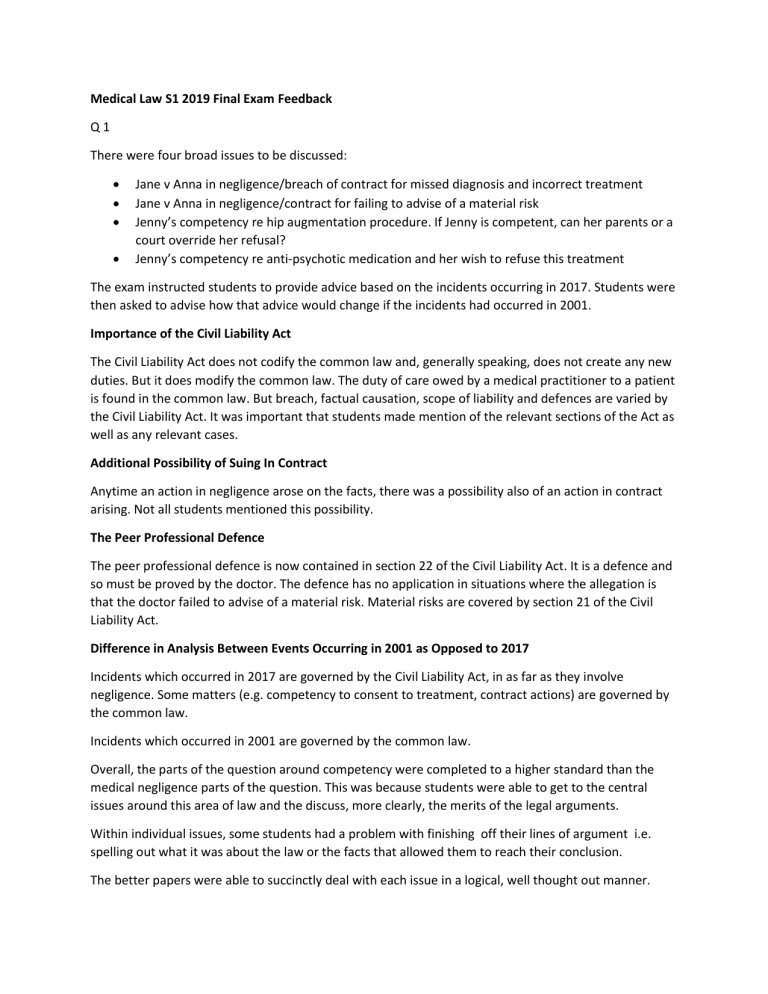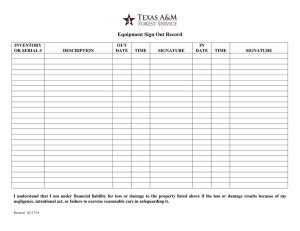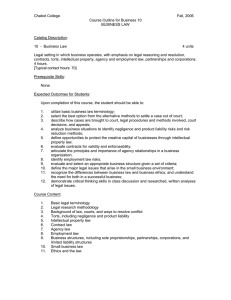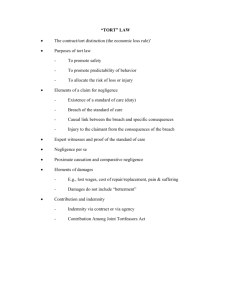
Medical Law S1 2019 Final Exam Feedback Q1 There were four broad issues to be discussed: Jane v Anna in negligence/breach of contract for missed diagnosis and incorrect treatment Jane v Anna in negligence/contract for failing to advise of a material risk Jenny’s competency re hip augmentation procedure. If Jenny is competent, can her parents or a court override her refusal? Jenny’s competency re anti-psychotic medication and her wish to refuse this treatment The exam instructed students to provide advice based on the incidents occurring in 2017. Students were then asked to advise how that advice would change if the incidents had occurred in 2001. Importance of the Civil Liability Act The Civil Liability Act does not codify the common law and, generally speaking, does not create any new duties. But it does modify the common law. The duty of care owed by a medical practitioner to a patient is found in the common law. But breach, factual causation, scope of liability and defences are varied by the Civil Liability Act. It was important that students made mention of the relevant sections of the Act as well as any relevant cases. Additional Possibility of Suing In Contract Anytime an action in negligence arose on the facts, there was a possibility also of an action in contract arising. Not all students mentioned this possibility. The Peer Professional Defence The peer professional defence is now contained in section 22 of the Civil Liability Act. It is a defence and so must be proved by the doctor. The defence has no application in situations where the allegation is that the doctor failed to advise of a material risk. Material risks are covered by section 21 of the Civil Liability Act. Difference in Analysis Between Events Occurring in 2001 as Opposed to 2017 Incidents which occurred in 2017 are governed by the Civil Liability Act, in as far as they involve negligence. Some matters (e.g. competency to consent to treatment, contract actions) are governed by the common law. Incidents which occurred in 2001 are governed by the common law. Overall, the parts of the question around competency were completed to a higher standard than the medical negligence parts of the question. This was because students were able to get to the central issues around this area of law and the discuss, more clearly, the merits of the legal arguments. Within individual issues, some students had a problem with finishing off their lines of argument i.e. spelling out what it was about the law or the facts that allowed them to reach their conclusion. The better papers were able to succinctly deal with each issue in a logical, well thought out manner. Q2 This question asked students whether Tabet v Gett is confusing and possibly wrongly decided. The question required the case to be analysed by reference to the facts of the case and the reasoning offered by each member of the High Court. Rather than critically analysing the validity of what was said in the judgements, some students simply recited the bare minimum from the judgments. Others only mentioned a couple of the judgments. The answers which received the highest marks were able to provide some detail about what the judgments said and then comment on whether the approach taken by the individual judgments was reasonable in light of the question.





